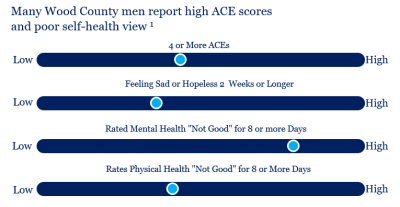Addressing Farmer Mental Health
Insights on Ohio Agricultural Mental Health
Addressing Farmer Mental Health: Insights on Ohio Agricultural Mental Health
The mental health of farmers and their amilies is a serious issue, particularly in Ohio, where agriculture is the backbone of the economy. In fact, agriculture is Ohio’s leading industry. Recent findings from the Ohio Agricultural Mental Health Alliance (OAMHA) survey, alongside a national poll by the American Farm Bureau Federation, show the unique challenges faced by the farming community and emphasize the need for mental health support.
Mental Well-Being: A Mixed Picture
Despite overwhelming stressors, the OAMHA survey found that three out of four respondents reported positive mental well-being, with 39% rating their mental health as “Very good or Excellent.” However, the data also revealed concerning trends:
- Loneliness and Isolation: About 50% of respondents felt lonely, with nearly 20% often feeling isolated. These feelings can worsen mental health issues and create barriers to seeking help.
- Access to Care: While 44% indicated they needed mental health services in the past year, half did not receive the support they sought. This gap highlights significant barriers to accessing mental health care, echoed by findings from the AFBF poll, which indicated that cost, stigma, and embarrassment deter many from seeking help.
The Impact of Stigma and Awareness
Both surveys reveal a significant awareness of the importance of mental health among farmers and rural adults. The AFBF poll showed that 91% of rural adults recognize mental health as a priority for themselves or their families. Yet, the perception of stigma remains a barrier. The data shows that 75% of rural adults and 66% of farmers believe reducing stigma in the agriculture community is vital.
Additionally, the AFBF poll indicated that farmers and farmworkers are less confident than the general rural population in identifying mental health warning signs, with only 55% expressing confidence in their ability to spot these signs. This gap highlights the urgent need for awareness and training within the agricultural community.
Men’s Mental Health in Wood County
In Wood County, the data surrounding men’s mental health is alarming. Many men report high Adverse Childhood Experiences (ACE) scores, with 4 or more ACEs. Research shows that experiencing four or more ACEs can increase the risk factor for several conditions including suicide contemplation and attempt. This often manifests in prolonged feelings of sadness or hopelessness, with many experiencing these feelings for two weeks or longer. Additionally, around half of these men rate their mental health as “not good” for four or more days each month.
Unfortunately, these struggles often go unnoticed. In 2019, Wood County men accounted for the majority of deaths by suicide, and local data suggests that they are more likely to die from suicide and unintentional overdoses than to seek help. This highlights a critical gap in support and accessibility for mental health resources across all backgrounds and professions including agriculture.
Recognizing the Signs
There isn’t a straightforward test to determine whether someone is experiencing a mental health issue or if their thoughts and actions are simply typical for them, or possibly linked to a physical condition.
While each mental illness has its specific symptoms, there are some common signs to watch for including:
- Excessive worrying or fear
- Feeling excessively sad or low
- Confused thinking or problems concentrating and learning
- Extreme mood changes, including uncontrollable “highs” or feelings of euphoria
- Prolonged or strong feelings of irritability or anger
- Avoiding friends and social activities
- Difficulties understanding or relating to other people
- Changes in sleeping habits or feeling tired and low energy
- Changes in eating habits such as increased hunger or lack of appetite
- Difficulty perceiving reality (delusions or hallucinations, in which a person experiences and senses things that don’t exist in objective reality)
- Inability to perceive changes in one’s own feelings, behavior or personality (”lack of insight” or anosognosia)
- Overuse of substances like alcohol or drugs
- Multiple physical ailments without obvious causes (such as headaches, stomach aches, vague and ongoing “aches and pains”)
- Thinking about suicide
- Inability to carry out daily activities or handle daily problems and stress
- An intense fear of weight gain or concern with appearance
Taking Action Together
Initiatives like the Ohio Department of Agriculture’s Got Your Back campaign aim to provide information and resources, promoting a culture where seeking help is not just accepted, but encouraged. If you or someone you know needs help, finding a mental health provider could be a good starting point. The Wood County Community Health Center is accepting behavioral health patients and can be contacted by calling 419-354-9049. Additionally, the 988 suicide and crisis lifeline is available 24/7 via call, text, or chat whenever a crisis is happening – simply all or text 988.
Resources:
https://agri.ohio.gov/gotyourback
https://www.fb.org/initiative/farm-state-of-mind



